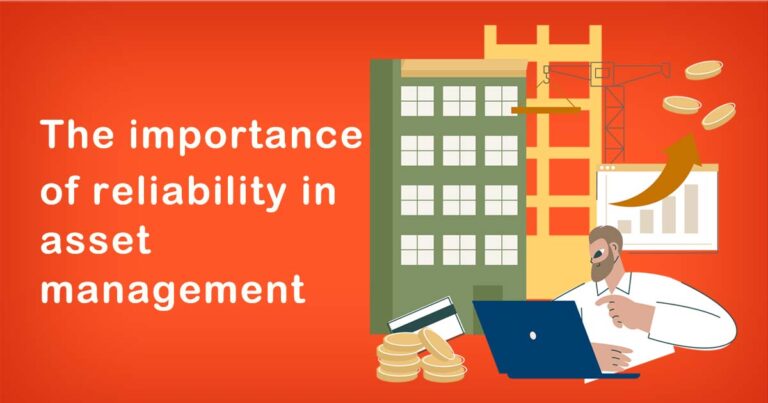Introduction
In the rapidly evolving landscape of real estate in India, property management has emerged as a vital component of maximizing investment returns and ensuring the smooth operation of residential and commercial properties. Whether you are a property owner, an investor, or a tenant, understanding property management is essential for navigating the complexities of the real estate market. This blog aims to provide a comprehensive overview of what is property management in the Indian context, covering its definition, significance, functions, benefits, and the challenges faced by property managers.
Understanding Property Management
Definition of Property Management
Property management refers to the operation, control, and oversight of real estate properties on behalf of their owners. It encompasses a range of tasks aimed at maintaining the property, managing tenant relations, and maximizing rental income while ensuring legal compliance. In India, property management services can be broadly classified into residential and commercial sectors, with each having distinct requirements and challenges.
The Role of Property Managers
Property managers serve as intermediaries between property owners and tenants, acting as the operational backbone of real estate investments. They are responsible for various aspects of property management, including:
- Tenant Acquisition: Finding suitable tenants through effective marketing strategies and screening processes.
- Lease Management: Drafting and enforcing lease agreements, ensuring compliance with terms and conditions.
- Rent Collection: Managing the collection of rent and ensuring timely payments to maintain cash flow.
- Maintenance and Repairs: Coordinating regular maintenance and urgent repairs to keep the property in optimal condition.
- Financial Management: Overseeing budgeting, accounting, and financial reporting to provide property owners with insights into their investments.
- Legal Compliance: Ensuring that the property adheres to local laws, regulations, and safety standards.
Types of Properties Managed
Property managers in India handle a wide array of properties, including:
- Residential Properties: Apartments, villas, and independent houses.
- Commercial Properties: Office spaces, retail shops, and industrial properties.
- Mixed-Use Developments: Properties that combine residential and commercial spaces.
- Vacation Rentals: Short-term rental properties catering to tourists and travelers.
The Importance of Property Management
Enhancing Property Value
One of the primary goals of property management is to enhance the value of a property over time. This is achieved through regular maintenance, timely repairs, and strategic upgrades that improve the property’s appeal. In a competitive real estate market, well-managed properties tend to attract higher rental income and have better resale value.
Efficient Operations
Effective property management streamlines operations by establishing standardized processes for tenant screening, maintenance requests, and financial management. This efficiency not only saves time and resources but also reduces the risk of disputes between landlords and tenants.
Tenant Satisfaction and Retention
Satisfied tenants are more likely to renew their leases and recommend the property to others. Property managers play a crucial role in fostering positive tenant relations through responsive communication, addressing concerns promptly, and maintaining a safe and enjoyable living environment.
Risk Mitigation
The real estate sector in India is subject to various risks, including legal disputes, market fluctuations, and property damage. Property managers help mitigate these risks by ensuring compliance with local laws, maintaining adequate insurance coverage, and implementing proactive maintenance strategies.
Functions of Property Management
Marketing and Advertising
To attract potential tenants, property managers develop comprehensive marketing strategies that may include online listings, social media promotions, and traditional advertising. They showcase the property’s unique features and benefits to create a compelling narrative that resonates with prospective tenants.
Tenant Screening
Tenant screening is a critical function that involves evaluating potential tenants based on their financial stability, rental history, and background checks. By conducting thorough screenings, property managers can minimize the risk of problematic tenants who may default on rent or cause property damage.
Lease Administration
Once a suitable tenant is identified, property managers prepare and execute lease agreements that outline the terms of tenancy. This includes specifying the duration of the lease, rental amount, security deposit, and other conditions. Effective lease administration is essential for preventing misunderstandings and legal disputes.
Rent Collection and Financial Management
Property managers are responsible for establishing efficient rent collection processes. This includes sending reminders, collecting payments, and maintaining accurate financial records. Regular financial reporting provides property owners with insights into income, expenses, and overall property performance.
Maintenance and Repairs
Regular maintenance is crucial for preserving property value and tenant satisfaction. Property managers coordinate routine inspections, maintenance schedules, and repair requests. They often have relationships with reliable contractors and service providers to ensure prompt and cost-effective solutions.
Legal Compliance
Compliance with local laws and regulations is vital in property management. This includes adhering to the Rent Control Act, the Real Estate (Regulation and Development) Act, and various safety standards. Property managers must stay informed about legal changes and ensure that the property operates within the legal framework.
Conflict Resolution
Disputes may arise between landlords and tenants due to various reasons, such as rent increases, maintenance issues, or lease violations. Property managers act as mediators, addressing conflicts professionally and working towards amicable solutions.
Benefits of Professional Property Management
Time Savings
For property owners, managing a property can be time-consuming and stressful. Hiring a professional property management company allows owners to focus on other priorities while experts handle the day-to-day operations.
Expertise and Experience
Property management professionals bring a wealth of experience and knowledge to the table. They are well-versed in local market trends, legal requirements, and effective management strategies, which can lead to better decision-making and improved property performance.
Increased Rental Income
Effective property management can lead to higher rental income through better tenant screening, strategic pricing, and proactive maintenance. By optimizing occupancy rates and reducing vacancies, property managers can significantly enhance a property’s profitability.
Enhanced Tenant Relations
Professional property managers prioritize tenant satisfaction, which fosters positive relationships and encourages lease renewals. Happy tenants are more likely to take care of the property and recommend it to others, leading to a stable and reliable income stream for owners.
Comprehensive Reporting
Property management companies provide detailed financial reports, performance metrics, and market analysis, enabling property owners to make informed decisions regarding their investments. This transparency is crucial for understanding the property’s performance and planning for future enhancements.
Challenges in Property Management
Market Volatility
The Indian real estate market is susceptible to fluctuations due to economic conditions, government policies, and demographic changes. Property managers must navigate these uncertainties and adapt their strategies to maintain profitability.
Regulatory Compliance
With the implementation of various regulations, including the Real Estate (Regulation and Development) Act (RERA), property managers face the challenge of ensuring compliance while keeping up with changes in the law. This requires continuous education and awareness of legal obligations.
Tenant Management
Dealing with diverse tenant personalities can be challenging. Property managers must possess strong communication and interpersonal skills to effectively handle tenant concerns, resolve conflicts, and maintain a positive living environment.
Maintenance Coordination
Coordinating maintenance and repairs can be a logistical challenge, especially in properties with multiple units. Property managers must ensure timely responses to maintenance requests while managing costs and vendor relationships.
Technology Adoption
As technology continues to reshape the property management landscape, managers must adapt to new tools and software. Embracing technology can improve efficiency but may require additional training and investment.
Conclusion
Property management is an indispensable aspect of the real estate sector in India, serving as a bridge between property owners and tenants. With the growing complexity of the real estate market, the role of property managers has become increasingly significant in ensuring the successful operation of properties. From tenant acquisition to maintenance coordination, property managers play a multifaceted role that requires expertise, dedication, and a proactive approach. As the Indian real estate market continues to evolve, the demand for professional property management services is likely to increase. For property owners, understanding the nuances of property management can lead to better investment decisions, enhanced property value, and improved tenant relations. Ultimately, effective property management contributes to a thriving real estate ecosystem that benefits all stakeholders involved. Whether you are a seasoned investor or a first-time property owner, recognizing the importance of property management is essential for achieving long-term success in the dynamic world of real estate in India.








